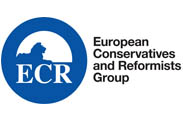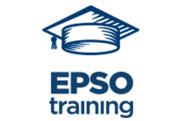The Assessment Center stage (or AC stage) of EPSO competition is taking place throughout the year. Before entering the assessment venue at EPSO's Brussels headquarters, let's see some advice on how to approach the big day and tips on how to prepare. Still in doubt? Contact us with any questions and we are here to assist you.
1. Know Why They Are Doing It: It is easy to think that a one-day Assessment Centre is an unnecessarily long and complicated way of recruiting Administrators for the European Institutions. If you, however, realize that this assessment method is not just there for EPSO to ‘sort out' candidates but also implemented for your "protection", you'll immediately approach the whole thing differently. It has been proven several times over the last decades that the AC is probably the most consistent, prejudice-free and fair selection method available. Since requirements are objectively defined in the form of competencies, you need not worry about any subjective disadvantage that you can do nothing against. Moreover, there are always two or more assessors evaluating your performance, so personal bias is also excluded.
2. Know What They Are Looking For: It is crucially important that you are clear about what you need to project as a candidate and what EPSO is looking for. This seems easier to do than it sounds. It would, for example, be a natural instinct for a lot of people to capitalize on their deep knowledge of a topic and assume a dominant role in a group discussion based on that knowledge. For instance, if you are an expert on the EU's financial regulations and tendering procedure for cohesion funds, you may feel tempted to "hijack" the conversation from other candidates. While this may prove that you are knowledgeable, that is actually only a small part of what the assessors will measure: rather, they will be looking at your cooperation, communication, compromising and questioning skills. All these character traits will not be apparent if you assume the role of a knowing-it-all expert.
3. Know What Competencies Are: As a formal definition, we can say that a competency is a "grouping of related behaviors, traits and motivations that each predict successful performance in a particular aspect of a role" - such as the role of an EU Administrator. Let's take an example EPSO competency: Delivering Quality Results. We can define this competency as a person who takes personal responsibility and initiative for delivering work to a high standard of quality within set procedures. This sounds like a nice definition, but what does it exactly mean in practical terms? This is where indicators and exercises come into play: see these below.
4. Know The Exercises: When you first read about all the different exercises at the EPSO assessment centre such as group exercise, oral presentation, EU case study and structured interview, your first thought might be that it is overwhelming, in fact, an overkill. Just the opposite: the number of exercises is closely related to the number and types of competencies EPSO needs to assess, and each competency is assessed at least by two exercises. Your written communication skills, for instance, cannot be measured in a group exercise, and your oral communication or conflict management skills may not become apparent by completing a case study but rather by getting "provocative" questions from the EPSO assessors at the oral presentation exercise. This allows EPSO to look at the same thing from multiple angles (to use multiple indicators of the same behaviors, as we mentioned in the previous point) and it also allows you to make up for poorer performance in one exercise by performing better in the other one!
An example: if you feel that you took a more "passive" role during the group exercise and did not participate much in deciding which tasks to complete first (prioritising and organising), you get another chance at demonstrating those same skills in another setting during the case study ("Can you finish the most important questions on time?") and maybe even in the structured interview by demonstrating your ability through a few carefully selected examples from your past.
5. Know the Little Things: The easiest mistake to make is to underestimate the importance of the little things. Let's take the oral presentation as an example. You get the background briefing material; you read it through and comprehend everything fully. You identify the key points and create a sketch for your presentation which you do perfectly: not too long, not too short, and it captures the essence of the information you have been given. You may feel that the hard part is over, but even the best material can be presented in a way that will seem extremely poor if you pay no attention to the delivery style. Capturing the attention of the audience (the assessors in this case) early on with a rhetorical question (or, heaven forbid, even a joke!), being enthusiastic about the subject (which in turn generates enthusiasm in the audience) can go a long way in improving your performance. You can check out an excellent YouTube illustration of this here.
6. Know What They Assess and Where: We mentioned the fact that each competency is measured at least twice during an assessment centre. If only we know which ones are assessed in which exercises. The official "Assessment Center Matrix" is a table with all competencies and exercises listed, with markings in the cells showing which competency is tested in which exercise. Your team working skills, for instance, are measured in multiple ways: based on the Situational Judgment Test you had already completed in the pre-selection exam (by selecting the most effective and least effective course of action in such a scenario, the group exercise and the structured interview are measuring your relevant skills. This last point is worth remembering: the interview gives you a chance to share your experiences with the assessor with regards to various competencies: how you worked in a team before (e.g.: "Can you mention a situation from your previous work experience when your colleague provided a low quality input in a crucial project? How did you react?") , if you ever had to present to an audience (e.g.: "Give an example of a presentation you had done to a large audience") or juggle multiple projects at the same time (e.g.: "Have you ever had two or three projects running in parallel? How did you prioritise?"), and so on. Always make sure to recall and prepare examples in advance: even memorize the general idea behind these responses if needed, as under stress our memory sometimes fails us. This is not cheating; if the stories you tell are true, they will help you make a good impression. On the other hand, if you cannot recall anything to tell the assessor, they will have nothing to assess…!
7. Know some Good Ways to Prepare: Have a careful look at the notice of competition and identify the knowledge that is required for your given field. Imagine you are working for EPSO as an assessor: how would you test a future colleague's knowledge and skills in each exercise? Make a list of questions you as an examiner would ask a lawyer (or public administrator or economist or auditor or ICT competitior) on his/her team-working skills, leadership skills and others. Another great way to prepare is to gather two or three friends and do role-play: you are the candidate and they are the assessors, then switch. You can create an evaluation sheet for each other and then discuss whose performance was good or poor and why. Lastly, don't forget that while the Assessment Centre measures your potential of becoming a suitable EU official, your domain specific professional knowledge is also a crucial element
Source: Articlebase.com











